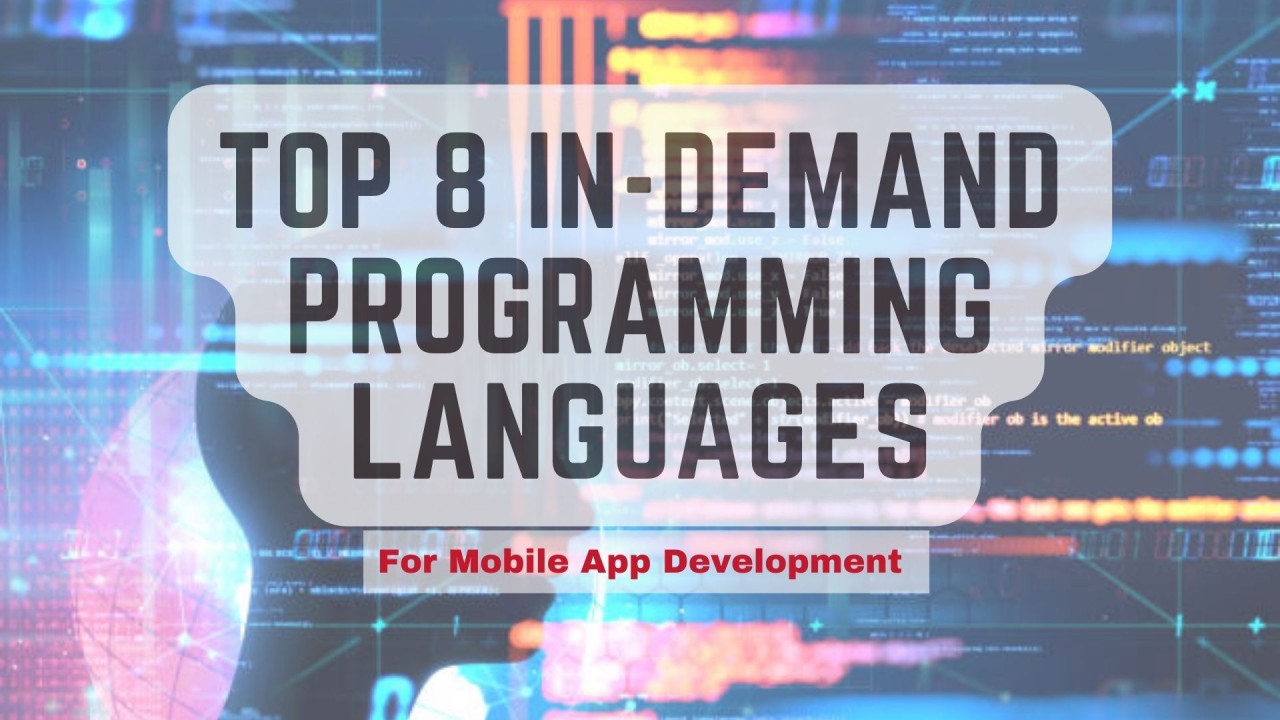
Programming Languages for Mobile App Development: Top 8 In-Demand Choices
Introduction
To succeed in mobile app development, choosing the right programming language is the top priority. With the rapid growth in the demand for innovative and user-friendly mobile applications, developers must stay updated on the most in-demand programming languages. This article will explore the top 8 programming languages for mobile app development, providing valuable insights to help you make informed decisions and excel in this dynamic industry.
1. Swift
Swift is the go-to programming language for iOS app development. Developed by Apple, Swift offers a modern and concise syntax that simplifies the development process. With its robust performance and seamless integration with Apple frameworks, Swift enables developers to create powerful and visually appealing applications for iPhones, iPads, and Macs.
2. Kotlin
Kotlin has gained significant popularity as the preferred language for Android app development. Supported by Google, Kotlin offers enhanced readability, concise coding, and seamless compatibility with Java. It's modern features and extensive tooling make it an excellent choice for building robust and scalable Android applications.
3. Java
Java remains a dominant player in mobile app development. Widely used for Android app development, Java offers stability, flexibility, and a vast ecosystem of libraries and frameworks. Its object-oriented nature and platform independence make it a versatile language for developing cross-platform applications.
4. JavaScript
JavaScript is a fundamental language for mobile app development, particularly web-based applications. With frameworks like React Native and Ionic, JavaScript enables developers to build cross-platform mobile apps using a single codebase. Its widespread adoption, extensive community support, and versatility across web and mobile platforms make it indispensable for modern app development.
5. Python
Python's simplicity, readability, and versatility have made it increasingly popular in mobile app development. With frameworks like Kivy and BeeWare, Python enables developers to create cross-platform mobile applications effortlessly. Python's extensive libraries, powerful data processing capabilities, and rapid development features make it a preferred choice for building data-centric or AI-powered mobile apps.
6. C#
C# (C Sharp) is the primary language for developing applications on the Microsoft platform, including Windows mobile apps. With the Xamarin framework, C# allows developers to build cross-platform apps that run on iOS, Android, and Windows devices. C# offers a rich set of libraries, a robust development environment, and seamless integration with the .NET ecosystem.
7. Flutter/Dart
Flutter, developed by Google, uses the Dart programming language to build native mobile applications for both iOS and Android platforms. Dart's reactive and declarative style and Flutter's hot-reload feature facilitate rapid development and the creation of visually appealing, high-performance apps. Flutter's widget-based architecture allows easy customization and ensures consistent UI across platforms.
8. React Native
React Native, based on JavaScript, is a widely adopted framework for building cross-platform mobile applications. It allows developers to write code once and deploy it on multiple platforms, significantly reducing development time. With its extensive component library and excellent performance, React Native empowers developers to create native-like apps that offer seamless user experiences.
Conclusion
In the competitive landscape of mobile app development, choosing the right programming language is vital for success. Swift and Kotlin dominate the iOS and Android ecosystems, respectively, while Java and JavaScript continue to be popular choices. Python, C#, Flutter/Dart, and React Native offer compelling features and capabilities for building mobile applications. By mastering these in-demand programming languages, you can position yourself for success and contribute to the ever-evolving world of mobile app development.